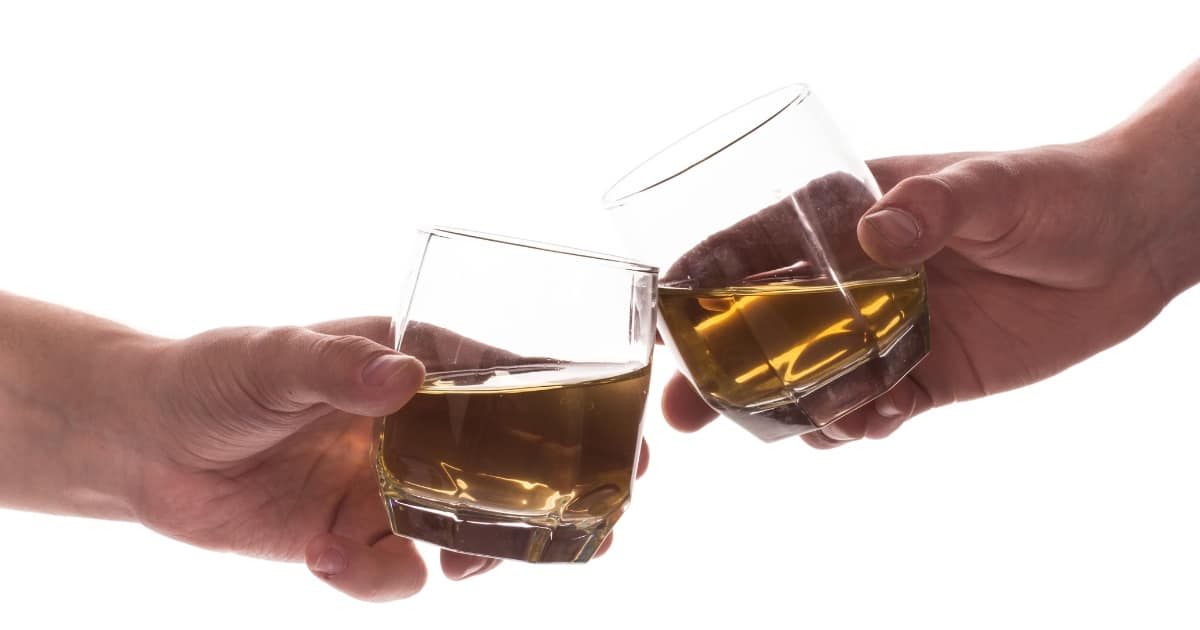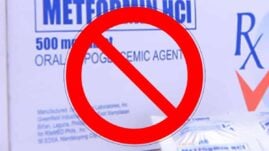Metformin is one of the most popular prescription drugs in the world, with more than 92 million active prescriptions in the United States alone as of 2020.
It is used to help people with type 2 diabetes and prediabetes keep their blood sugar levels in target range, and it also helps manage both insulin resistance and weight.
Understandably, you may have many questions about incorporating the medicine into your daily life, like what you should eat and avoid while taking the drug, and whether you can (and should) drink alcohol while on metformin.
This article will investigate all you need to know about drinking alcohol while taking metformin.

Table of Contents
- What is metformin?
- What are the side effects of metformin?
- What happens if you drink alcohol while taking metformin?
- Should you drink alcohol at all if you’re on metformin?
- How long after taking metformin can you drink alcohol?
- What is the best alcohol to drink on metformin?
- How to make drinking safer if you have diabetes
- Final thoughts
What is metformin?
Metformin is often sold under the brand names Fortamet, Glucophage, Glucophage XR, Glumetza, Riomet, and Riomet ER.
The medicine lowers blood sugar levels by decreasing the production of glucose by the liver, reducing the amount of sugar absorbed by the intestines, and increasing insulin sensitivity, allowing individual cells in the body to consume more sugar and use it more efficiently.
It can be taken once or twice per day, most often with dinner. It is an extremely safe drug that is usually well-tolerated with minimal side effects.
Learn more in: Is Metformin Safe?
What are the side effects of metformin?
Most of the side effects people experience while taking metformin are mild and include:
- Nausea
- Stomachache or stomach cramps
- Vomiting
- Diarrhea
- Loss of appetite
- Weight loss
- Low blood sugar
- Metallic taste in the mouth
- Weight gain (rare)
Read more about the potential side effects of metformin in our guide: Metformin Side Effects: What You Need to Know.
What happens if you drink alcohol while taking metformin?
There are a variety of side effects that can result from drinking alcohol while on metformin.
Low blood sugar
Drinking alcohol can cause blood sugar levels to drop fast in people who have diabetes, and taking metformin can also lower blood sugar, so combining the two increases your risk of hypoglycemia (low blood sugar).
This can be particularly dangerous because the symptoms of intoxication are similar to the symptoms of low blood sugar, so you need to be careful when drinking and keep a close eye on your blood sugars while doing so.
Symptoms of low blood sugar include:
- Shakiness
- Drowsiness
- Confusion
- Dizziness
- Headache
It’s important to note that drinking can cause low blood sugar levels for up to 24 hours afterward, so extra vigilance is required if you decide to drink alcohol and have diabetes.
Lactic acidosis
Taking metformin and drinking alcohol can also increase the risk of a rare but serious complication called lactic acidosis, which requires immediate medical attention.
Lactic acidosis happens when the body produces more lactic acid than it can clear. This may happen either because there’s not enough oxygen being delivered throughout the body or because the body is having difficulty using the oxygen properly.
In the case of metformin and alcohol, this may result because metformin causes the body to create more lactic acid, while alcohol prevents the body from getting rid of lactic acid as quickly as usual.
Symptoms of lactic acidosis include:
- Stomach pain or discomfort
- Nausea and vomiting
- Decreased appetite
- Persistent diarrhea
- Difficulty breathing, shallow breathing, or hyperventilation
- Rapid heart rate
- Muscle pain and cramps
- Lethargy, fatigue, or weakness
- Sleepiness
- Altered mental status, including drowsiness, confusion, or loss of consciousness
Not treating lactic acidosis quickly can lead to damage to the blood vessels, heart, lungs, and kidneys (which can be extra dangerous for someone living with diabetes).
If the condition is not treated at all, it will lead to organ failure and death.
See more in: Can Metformin Cause Lactic Acidosis?
Should you drink alcohol at all if you’re on metformin?
Alcohol can have negative interactions with many different drugs and medications, so it is best to always talk with your doctor before drinking alcohol, especially if you’ve recently started a new medication.
Follow all instructions on any prescription drugs you are taking.
Because of the risks involved, you may also want to consider avoiding alcohol if you are taking metformin.
With those recommendations in mind, many people do drink alcohol while taking metformin. As with anything, moderation is key.
General guidelines are the following: For women, a moderate amount of alcohol is no more than one drink per day, and for men, a moderate amount is no more than two drinks per day.
According to the National Institutes of Health, a drink is considered to be 12 ounces (oz) of regular beer, 5 oz of wine, or 1.5 oz of 80-proof distilled spirits.
Be aware that some people are more likely to be sensitive to the effects of alcohol, which can potentially put them at greater risk when combining alcohol and metformin. These include women, adults ages 65 and older, and people with kidney or liver problems.
How long after taking metformin can you drink alcohol?
There is no specific rule for how long you should wait to drink alcohol after taking metformin, so be sure to discuss this with your doctor. They will consider a variety of factors, such as other health conditions you may have, additional medications you may be taking, and your personal tolerance to alcohol.
What is the best alcohol to drink on metformin?
It’s also worth noting that no type of alcohol is considered “best” to consume while taking metformin. The effects of drinking can vary based on a variety of factors, including other health conditions you may have, other medicines you are taking, and how much alcohol you have consumed.
For blood sugar, however, avoiding mixed drinks, which can have significant amounts of sugar, can help keep blood sugar levels in target range.
How to make drinking safer if you have diabetes
There are some additional guidelines for drinking alcohol if you have diabetes to make sure you’re imbibing more safely:
- Do not drink alcohol while your blood sugar is low.
- Do not drink alcohol on an empty stomach. (Eating a snack with fat and protein before drinking can help stabilize blood sugar levels.)
- Pace your drinking with water so you do not become dehydrated.
- Always carry treatments for low blood sugar with you (such as glucose tabs, hard candies, juice, or regular [not diet] soda).
- Have a snack after drinking.
- Check your blood sugar before, during, and after drinking, and especially before you go to sleep.
- Wear a continuous glucose monitor (CGM) to track your blood sugars better while drinking, and ensure the low alarms are turned on.
- Ensure the people you are with know you have diabetes and know how to treat low blood sugar (and even administer emergency glucagon treatment, if need be).
- Wear a medical ID bracelet in case of an emergency.
- Always let someone know where you’re going and when you expect to be back, and provide a way to reach you.
- Always keep your cell phone nearby with the ringer on.
Final thoughts
The interaction between metformin and alcohol is complicated and requires careful attention. For people managing diabetes with metformin, moderate alcohol consumption — defined as up to one drink per day for women and two for men — may be acceptable.
However, the decision to drink alcohol should also be approached with careful consideration and an awareness of your own body’s responses.
The combination of metformin and alcohol significantly raises the risk of low blood sugar and lactic acidosis, conditions that can be serious and potentially life-threatening. And symptoms of these conditions can overlap with those of intoxication, making it even more important to be able to distinguish between them.
Being vigilant in monitoring blood sugar levels if drinking is key, along with taking other precautions such as not drinking on an empty stomach, pacing yourself with water, and having treatments on hand for low blood sugar.
Ultimately, the decision to consume alcohol or not while on metformin should be made with your healthcare team.
Suggested next article: Everything You Need to Know About Metformin.




